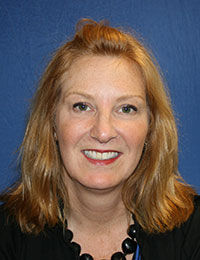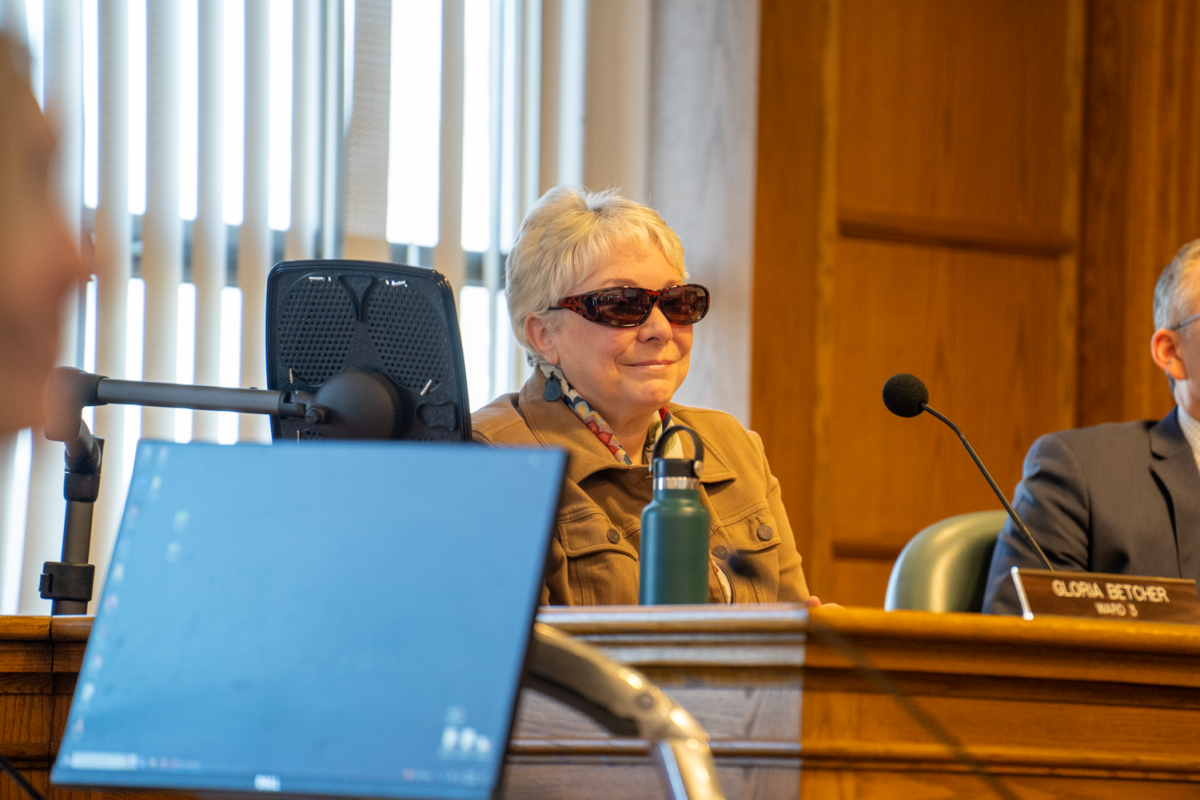ISU lecturer publishes her fourth book

Courtesy of Iowa State University
Jennifer Knox, a professor at Iowa State University, has numerous books published.
January 10, 2016
It’s hard enough to get one book published, but one ISU lecturer is on her fourth.
Iowa’s landscape and the impermanence of the world around her were parts of the inspiration for “Days of Shame and Failure,” the fourth book of poetry by Jennifer Knox, a lecturer in the English department.
Knox, who moved to Iowa about two and a half years ago, said that watching the steel of grain silos deteriorate over the years showed her both the impermanence of the environment and the impermanence of life as a whole.
“I’ve also seen that a lot of ideas of my youth are impermanent,” Knox said.
Knox, who now lives in Nevada, Iowa, said that moving from New York allowed her to look at life differently. She said the poems in “Days of Shame and Failure” are more about her life, a subject matter she’s struggled with.
“It’s easy to say the most preposterous things if you’re speaking through someone else,” Knox said, adding that those who have experienced the failures of adult life can relate to her new book.
Knox added that, when doing readings, she finds that college students tend to enjoy her earlier work a little more. She said that when she began writing poems they more closely resembled slam poetry.
However, that doesn’t mean that Knox’s poems aren’t full of energy.
“I realize there’s a physicality to writing a poem that’s definitely not there when you’re writing a short story or a novel,” Knox said.
The directness that Knox pours into her poetry has been there since the first book said Shanna Compton, editor and publisher at Bloof Books, the company that published “Days of Shame and Failure.”
“It’s always a ton of fun to work with Jen,” Compton said. “I’ve edited all four of her poetry collections, so we’ve had a lot of practice with the back and forth.”
Compton said that while Knox’s poetry may be direct, it isn’t without substance.
“She values clarity, and bold statement, for sure,” Compton said. “But that’s not to say her work is simple. She packs lots of complexity into her poems, in a very sly way: in the voices, in the small details.”
Knox worked in business communications for 25 years and now teaches classes such as business writing and technical communication.
“It’s very fun to be able to apply what I had to learn on the job to their material,” Knox said.
She added that she’s also able to apply what she’s learned from her time in the field to her poetry as well because it allows her to get her audience to the end of the poem without them getting lost.
Regardless, Knox’s feelings about poetry are not nearly as direct nor straightforward as her poems themselves.
“Poetry is such a strange elusive animal,” Knox said. “It often sets you up with uncomfortable feelings that you’re not ready for.”
Compton said anyone who has a chance to hear Knox read, and thereby try and tame the strange and elusive animal of poetry, should.
“As great as her work is on the page, it’s even better when she’s doing it in the German accent of an angry gynecologist, or the wise voice of a retired Hollywood stunt dog,” Compton said.
For those who want to read poems on the page, Knox said they needn’t be worried if they generally don’t like poetry. Knox said she is a big fan of sentences, and writes in a rather standard syntax that is easy to read.
A sentence-based structure doesn’t mean that Knox’s poems aren’t chalked full of meaning. She said the best way to describe the art of poetry is by comparing it to the type of vacuum bag one can put multiple comforters, pillows, sweaters, and more in and compress it into a package a fraction of the size of the items as a whole.
“Distilled,” Knox said, describing poetry in just one word.















